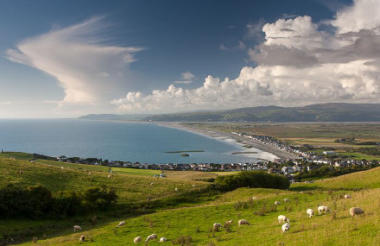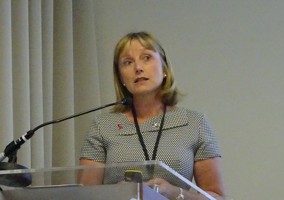The charity Rewilding Britain has stepped back from a project to revitalise the local economy and wildlife in mid Wales after members of the community and farmers’ unions said they were unhappy about its involvement.
The charity was one of eight organisations involved in the Summit to Sea initiative that secured £3.4m in funding from the Cambridge Conservation Initiative, which is funded by the grantmaker Arcadia.
Over five years, the project aims to offer grants and support to local businesses to bring together one continuous, nature-rich area, stretching from the Pumlumon massif – the highest area in mid-Wales – down through wooded valleys to the Dyfi Estuary and out into Cardigan Bay.
Concerns about the charity’s involvement were raised by the Farmers’ Union Wales, because the charity’s ambition is to restore land to its original state.
FUW posted an article on its website in October saying that: “It was felt that the objectives of the organisation were in direct conflict with agriculture, particularly in the uplands, as well as being damaging for conservation and species which rely on sustainable agriculture.”
There are seven remaining partners, who are: Woodland Trust, Montgomeryshire Wildlife Trust, RSPB, Marine Conservation Society, PLAS Marine Special Area of Conservation, Whale and Dolphin Conservation and WWF.
Putting the community at the heart of the project
Yesterday Rewilding Britain said it was withdrawing and hoped that the project would be taken forward by the local community.
In a statement, Rebecca Wrigely, chief executive of Rewilding Britain, said: “We’re hugely proud to have helped get Summit to Sea up and running. It’s an inspiring project about restoring nature, benefitting rural communities and supporting the local economy. To succeed, it has to be community led and community supported as it finds ways to help both people and nature to thrive.
“Our role is to support projects in getting off the ground. One of our key principles is that local organisations and communities should be at the heart of this. While Summit to Sea held a series of face to face meetings and consultations locally, we should have communicated more widely that the project was to be community-led and owned. We’ve learnt some invaluable lessons about how to do this in the most effective way, which we’re committed to putting into practice elsewhere.”
Summit to Sea’s director, Melanie Newton, added: “The community is at the heart of the Summit to Sea project, and so the views of local people are vital to the partnership. We have greatly valued Rewilding Britain’s involvement – the charity has provided much-needed support through its short-term role in getting the project up and running.
“The project steering group – including Rewilding Britain – has taken on board concerns raised by local people and farming unions and decided to make changes to the way Summit to Sea is managed. We are now eager to move forward with the community and pave the way for a future which is beneficial to all.”
Community engagement sessions will begin in November to shape how funding is spent.
Related articles












